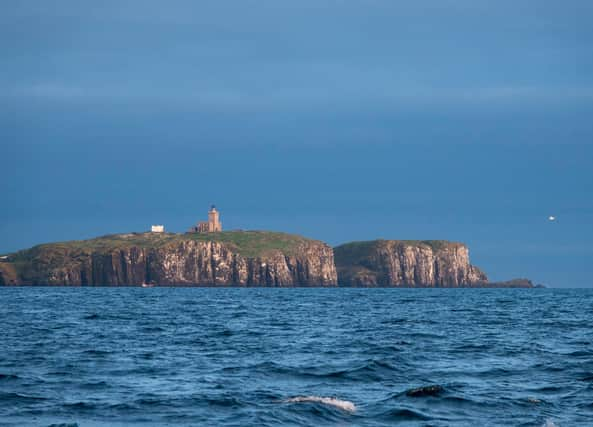The team going to the rescue of Isle of May's pufflings


The birds are among this year's fledglings from the Isle of May in the outer Firth of Forth, where around 42,000 pairs of puffins flocked to breed this summer.NatureScot staff and seabird researchers working on the island rescue 40 day old chicks - known as pufflings - after they leave their nests in burrows on the island for the last time.While most pufflings fly out to sea under cover of darkness to avoid predatory gulls, a few are found wandering lost on the island in daylight, where they can be easy prey.The lost pufflings are gathered up and handed over to the crews of boats such as the May Princess, which transports a boatload of tourists and birders to and from the island each day from Anstruther in Fife.Crewman Scott Gardner said he releases the lost pufflings around a mile offshore to give them the greatest chance of a safe start in life, and revealed dozens have been rescued this season.He said: "The pufflings come out of their nests at around 40 days old and make their way themselves to the water at night to avoid gulls over a period of a few weeks."A few of these get lost on the island and if they are still around in the morning they can be easy prey. The wardens on the island pick these birds up and look after them and make sure they are healthy, and ring them, and once they are deemed ready they give them to us and we do our thing."We release the pufflings a mile or so away from the island so that there is less chance of the gulls getting them."At the peak times we get a puffling almost every day -- it's nice to set them on their way."Puffins lay just a single egg, which both parents incubate for around 40 days and also share feeding duties until the puffling is ready to fledge, usually at night to avoid predators.Once a puffling fledges, it won't touch land again for around two years. The birds don't start breeding until they are five or six years old, when they will return to the island where they hatched.David Steel, NatureScot's reserve manager on the Isle of May, said staff and researchers discover pufflings in need of a helping hand to the sea daily at fledging time.
He added: "Many of the island's birds prefer to walk down to the sea taking advantage of the pathways and tracks which are vegetation free. Having never seen the outside world before, small numbers can be distracted and curious by the buildings on the island and become trapped.
Advertisement
Hide AdAdvertisement
Hide Ad"As a result, a daily job is that the team has to check around the buildings and other structures to ensure none have become trapped - birds have been found inside buildings including our kitchen and shower.
"However it all ends well as these birds are ringed and released successfully soon after, sometimes by boat to get them well away from the island."